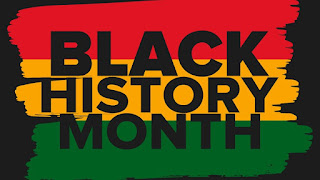The Significance of Black History Month
"Until the lions have their historians, tales of the hunt shall always glorify the hunter.”- African Proverb.
There are those who will agree that it is a paradox to celebrate Black History Month in a society that is made up of predominantly people of African descent. Regardless, of your position it is important for us to pause and pay homage to the sacrifices of people of colour whose history is often under-represented and underappreciated over the centuries.
Unfortunately, most Jamaicans are unaware of their historical background. Furthermore a significant gap is in our education policy which relegates the teaching of history as optional. This omission of history from among the core subjects directly impacts how we see ourselves as a people. The ongoing bleaching of the skin is also related to the lack of knowledge of our rich and powerful historical past. The fact that history is optional in our schools speaks volumes about our cultural identity or lack thereof. There are those who will argue that more can be done to engender a greater appreciation for our unique history and culture by means of the education system. Interestingly, Friday, February 23, 2024 will be observed as Jamaica Day within the education system. This year’s theme is “Celebrating Jamaica: Authentic and Unique…A Fi Wi Trend A Dweet.
Every February, the United States of America (U.S.A) pays homage to the contributions and sacrifices of African Americans who worked tirelessly to shape the nation. Black History Month celebrates the rich cultural heritage, triumphs and adversities that are an indelible part of the history and journey of the USA. The story of Black History Month began in 1915 when Harvard-trained historian Carter G. Woodson and the prominent minister Jesse E. Moorland founded the Association for the Study of Negro Life and History (ASNLH), an organization dedicated to researching and promoting the achievements by Black Americans and other peoples of African descent. Known today as the Association for the Study of African American Life and History (ASALH), the group sponsored a national Negro History Week in 1926. The second week of February was chosen to coincide with the birthdays of Abraham Lincoln and Frederick Douglass. Importantly, by the late 1960s, Negro History Week had evolved into what is now known as Black History Month. Additionally, protests around racial injustice, inequality and anti-imperialism that were occurring in many parts of the U.S. were fundamental to the change.
Over the years, the observation of Black History Month has increased rapidly beyond the shores of the United States of America. The event is commemorated in many schools and communities particularly in the Americas. Black History Month can be celebrated by establishing history clubs and hosting performances and lectures in educational and cultural spaces. Additionally, social media facilitates the sharing of information regarding black history.
February was chosen primarily because it coincided with the birthdays of both Abraham Lincoln who was influential in the emancipation of slaves, and Douglass, a former slave, and a prominent leader in the abolitionist movement. The Black History Month theme for 2024 is “Rhythms of Resilience: One Soul, One Sound.” This month's theme centers on the concept that Black history, culture, and music embody a tapestry of diversity and interconnection, rather than being a single narrative. Noteworthy, in 1976 President Gerald Ford officially recognized Black History Month. President Ford called upon the public to “seize the opportunity to honor the too-often neglected accomplishments of Black Americans in every area of endeavor throughout our history.” Today, Black History Month is a time to honour the contributions and legacy of African American activists and civil rights pioneers namely Harriet Tubman, Sojourner Truth, Marcus Garvey, Martin Luther King Jr., Malcolm X and Rosa Parks to leaders in industry, politics, science, culture and more. Among the legacies for post-slavery societies is the ability for us to build on the legacies of those who have gone before us. May we never forget the struggles of the past as we celebrate Black History Month.
In the words of Marcus Garvey, a people without the knowledge of their past history, origin and culture is like a tree without roots.
Wayne Campbell is an educator and social commentator with an interest in development policies as they affect culture and or gender issues.
waykam@yahoo.com
©
#BlackHistoryMonth



Comments
Post a Comment